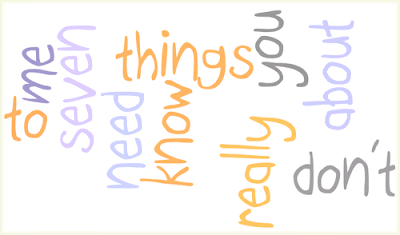

" because whoever has something, will have more given to him."
Mark 4:25
I am not religious, neither am I against religions, but Diane Cordell’s post, The Others, made me think about Mark 4:25.
She asks the questions:- Q - Do you believe that our educational culture could be/should be more inclusive?
- Q - Are we reaching the Others?”
My reactions to those were immediately, 1. A – yes, 2. A – no.Diane made me reflect on just how the educational culture that I know could be fairer, so that every learner was included, got a fair share, and got a fair chance to speak out. I wondered about practicalities and the reality of it all.I left a comment on Diane’s post:
While it is true that teachers are not reaching all learners and all learners are not getting a 'fair share' (whatever that is), the practicality of it all is that teachers can't reach all learners. And of course all learners can't get their fair share.
The question is, how do we go about cutting the cake so that each learner gets their fair share?
I am a distance educator with some 200 or more students. The way the system operates, learners can phone me anytime they wish. I phone them sometimes too. But if a learner phones me and chats for 20 minutes, she's used 8 more minutes than I have allocated per week to spend with her.
A fairer share:
The reality is that my weekly ration is less than 12 minutes per learner to do all I need to do with associated teaching and learning. That includes phoning up the learner if need be. That's about 150 seconds per day per learner.
Fair? I don't think so. But how do I, as teacher, make adjustments so that all learners get a fair crack of my time?
Do I say to a caller, "Sorry, your time is up for this week. Give me a call next week and I'll give you the rest of the help you need"?
Or do I lay aside Jenny's assignment that's next in line for assessing because she spoke to me for 20 minutes on the phone?
After school:
Classroom contact is not much different from this. When I taught in a classroom, I used to give coaching sessions for maths after school. Effectively it gave kids an extra 20% more time with me. You can see the theoretical leverage that had on their achievement. Though in reality it was not quite as efficient as that, it still made a significant difference for those who participated.
A recent study has shown that the reason children from the so-called lower classes don't do so well at school is because, for them, the school IS the learning.
For more privileged children, their learning continues at home and that includes during the holidays. Oh, it's not all maths, science and English for them in the holidays, but it's learning just the same. Their parents groom them in other useful skills in preparation for their place in society. How does a teacher redress that inequity?
An eye for an aye:
Callous I may seem to be, but in the environments that I have taught in, including the present, I adopt the principle that each learner gets from me what they are prepared to give. That's to say, if a learner is prepared to spend time on the phone with me, I am prepared to spend the time with them.
Fair? I think so.


 This year, the musician and visionary, Benjamin Zander said,
This year, the musician and visionary, Benjamin Zander said,






































